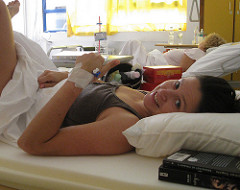When asked what attributes or skills a doctor should have, many people generally respond with qualities like leadership, intelligence, and dedication. All of these are very important skills for a health professional to possess, but a couple that are even more vital are usually left out: teamwork and communication skills.
In modern medicine and healthcare, communication and teamwork are key. Health professionals must be able to cooperate and work well with their peers as well as communicate efficiently with their patients in order to ensure the best possible care.
According to a study done by a group of physicians at the School of Medicine of the University of Colorado Anschutz Medical Campus, poor communication between hospital clinicians and primary-care physicians can lead to difficulties planning patient recovery plans, missed test results, increases in hospital re-admissions, confusion over follow-up care, and more. It is crucial for health professionals to be able to properly communicate with each other. Otherwise, patients run back and forth to their doctors without any progress.
This also shows the importance of health professionals’ ability to properly communicate with their patients. Research evidence shows that “there are strong positive relationships between a healthcare team member’s communication skills and a patient’s capacity to follow through with medical recommendations, self-manage a chronic medical condition, and adopt preventive health behaviors.” Strong connections between health professionals and their patients not only improve the patient’s care, but they also reduce the risk of unnecessary tests and referrals and enhance the patient’s perception of the quality of healthcare.
Communication skills prove to be essential as a health professional, yet “communication training for clinicians and other healthcare professionals historically has received far less attention throughout the training process than have other clinical tasks.” As important as general knowledge and the ability to retain important information are for a health professional, they do not make up for a lack of interpersonal and communicative skills.
Feature Image Source: Patient D by Darcie Tanner










